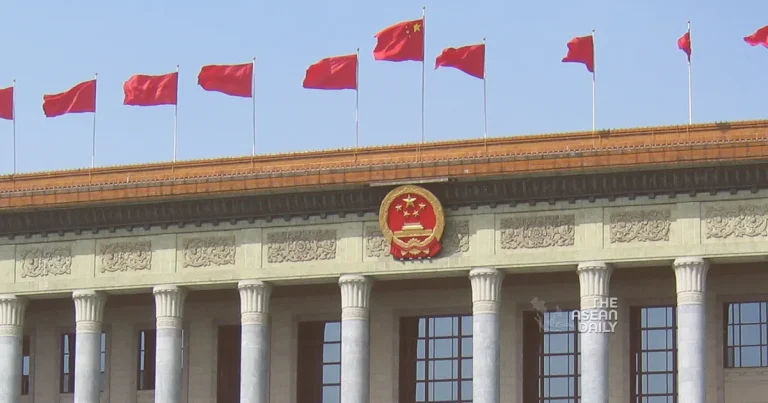2-2-2024 (BEIJING) China has demanded that Ukraine immediately remove over a dozen Chinese companies from its list of firms designated as “international sponsors of war.” The request comes as China seeks to eliminate what it considers to be negative impacts on bilateral relations. The inclusion of these companies on the list has sparked tensions between the two nations.
China’s ambassador in Kyiv expressed concerns to senior Ukrainian government officials last month about the consequences of including Chinese companies on the list. In response to the report, a spokesperson from the Chinese foreign ministry stated that China firmly opposes the listing and called on Ukraine to correct its mistake and eliminate the perceived negative impacts. However, the spokesperson did not elaborate on the specific repercussions.
Despite China’s close ties with Moscow and its reluctance to criticize Russia’s invasion of Ukraine, Beijing maintains that the sovereignty and territorial integrity of all countries should be respected. China has even offered to mediate in the ongoing war between Ukraine and Russia.
Ukraine has compiled a list of 48 companies globally, including 14 from China, that it considers “international sponsors of war” due to their alleged indirect support of Russia’s war efforts. The Chinese ambassador warned that the inclusion of these companies could have a detrimental effect on bilateral relations, according to Ukrainian sources. However, China did not impose any conditions and simply expressed its viewpoint on the matter.
There is speculation that China might link this issue to its purchases of Ukrainian grain. Prior to Russia’s invasion in 2022, China was Ukraine’s largest trading partner and a significant consumer of Ukrainian agricultural products such as grain, sunflower oil, and iron ore.
It is important to note that the blacklist compiled by Ukraine does not carry legal implications for the listed firms but is intended as a reputational tool. The list highlights extensive cooperation between Chinese and Russian companies, particularly in the oil and gas sector, which remains a significant source of revenue for Moscow. Among the Chinese energy giants featured on the list are China National Petroleum Corporation (CNPC), China Petrochemical Corporation (Sinopec Group), and China National Offshore Oil Corporation (CNOOC).
At present, Sinopec and CNOOC have not responded to requests for comment, while CNPC has stated that the list is not a new development.
Ukraine’s National Agency for Corruption Prevention views the blacklist as a potent tool for influencing global supply chains and encouraging international businesses to disengage from Russia.
Despite China’s perceived alignment with Russia, Ukraine has been cautious not to antagonize the second-largest economy in the world throughout its conflict with Moscow. Ukrainian authorities have repeatedly urged China to support diplomatic efforts for peace. While China participated in a high-level meeting in Jeddah last year, it has refrained from attending subsequent gatherings.
China was previously Ukraine’s primary destination for food exports via a UN-brokered grain corridor established after Russia’s invasion. However, this corridor is no longer operational. Approximately 7.9 million metric tons of the total 30 million tons of grain transported through this route were destined for China.
Under Kyiv’s new Black Sea shipping corridor, established in August, approximately 30% of Ukraine’s maritime exports, including food, metals, and ore, were shipped to China.
China currently has the highest number of companies on Ukraine’s blacklist, with 14 firms listed. The United States, France, and Germany follow with eight, four, and four companies respectively.
Recently, Chinese Vice Foreign Minister Sun Weidong met with Ukraine’s ambassador to Beijing to discuss matters of mutual concern, emphasizing the importance of mutual respect and sincere treatment between the two countries.




